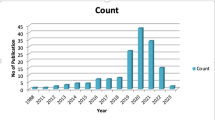Zusammenfassung
Deep learning has been widely adopted as the solution of choice for a plethora of medical imaging applications, due to its state-of-the-art performance and fast deployment. Traditionally, the performance of a deep learning model is evaluated on a test dataset, originating from the same distribution as the training set. This evaluation method provides insight regarding the generalization ability of a model.
Chapter PDF
Similar content being viewed by others
Literatur
Paschali M, Conjeti S, Navarro F, et al. Generalizability vs. robustness: investigating medical imaging networks using adversarial examples. Proc MICCAI. 2018; p. 493–501.
Szegedy C, Zaremba W, Sutskever I, et al. Intriguing properties of neural networks. Int Conf Learn Representations. 2014;Available from: http://arxiv.org/abs/1312.6199.
Author information
Authors and Affiliations
Corresponding author
Editor information
Editors and Affiliations
Rights and permissions
Copyright information
© 2019 Springer Fachmedien Wiesbaden GmbH, ein Teil von Springer Nature
About this paper
Cite this paper
Paschali, M., Conjeti, S., Navarro, F., Navab, N. (2019). Abstract: Adversarial Examples as Benchmark for Medical Imaging Neural Networks. In: Handels, H., Deserno, T., Maier, A., Maier-Hein, K., Palm, C., Tolxdorff, T. (eds) Bildverarbeitung für die Medizin 2019. Informatik aktuell. Springer Vieweg, Wiesbaden. https://doi.org/10.1007/978-3-658-25326-4_4
Download citation
DOI: https://doi.org/10.1007/978-3-658-25326-4_4
Published:
Publisher Name: Springer Vieweg, Wiesbaden
Print ISBN: 978-3-658-25325-7
Online ISBN: 978-3-658-25326-4
eBook Packages: Computer Science and Engineering (German Language)




